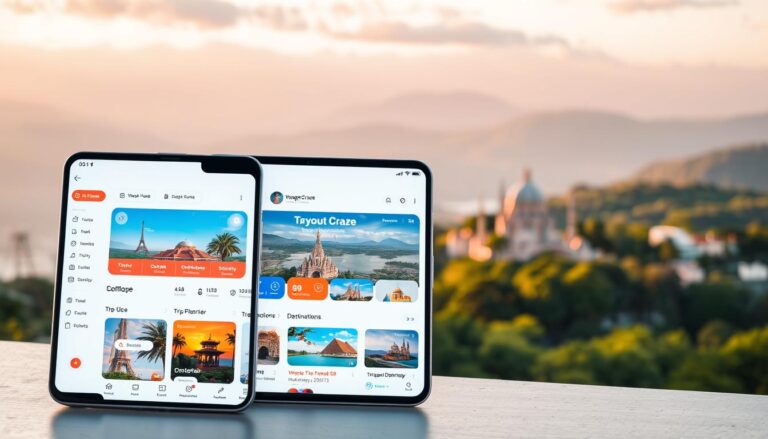-
Table of Contents
- How to Respect Local Cultures While Traveling
- Introduction
- Why Respecting Local Cultures Matters
- Practical Tips for Respecting Local Cultures
- 1. Research Before You Go
- 2. Learn Basic Phrases in the Local Language
- 3. Dress Appropriately
- 4. Follow Local Etiquette
- 5. Support Local Businesses
- 6. Be Mindful of Photography
- 7. Participate in Cultural Activities
- 8. Avoid Cultural Appropriation
How to Respect Local Cultures While Traveling

Introduction
Traveling is one of the most enriching experiences a person can have. It allows you to explore new places, meet diverse people, and immerse yourself in different cultures. However, with this privilege comes the responsibility to respect the local customs, traditions, and ways of life. Failing to do so can lead to misunderstandings, offend locals, and even harm the cultural heritage of the destination. In this article, we’ll explore practical ways to respect local cultures while traveling, ensuring that your journey is both meaningful and respectful.
Why Respecting Local Cultures Matters
Respecting local cultures is not just about being polite; it’s about fostering mutual understanding and preserving the unique identities of communities around the world. According to a 2022 report by the World Tourism Organization, cultural tourism accounts for 40% of global tourism, making it essential for travelers to act responsibly.
“Travel is fatal to prejudice, bigotry, and narrow-mindedness.” – Mark Twain
By respecting local cultures, you contribute to sustainable tourism, build positive relationships with locals, and gain a deeper appreciation for the places you visit.
Practical Tips for Respecting Local Cultures
Research Before You Go
Before traveling to a new destination, take the time to learn about its culture, history, and customs. This will help you avoid unintentional faux pas and show locals that you value their traditions.
- Read travel guides and blogs, such as this guide to Tokyo.
- Watch documentaries or YouTube videos about the destination.
- Join online forums or social media groups to ask questions and gather insights.
Learn Basic Phrases in the Local Language
Even a simple “hello” or “thank you” in the local language can go a long way in showing respect. Apps like Airalo can help you stay connected and access language tools on the go.
“A different language is a different vision of life.” – Federico Fellini
For example, saying “arigato” in Japan or “gracias” in Spain can make interactions more pleasant and meaningful.
Dress Appropriately
Clothing is a significant aspect of cultural expression. In many countries, modest attire is a sign of respect, especially when visiting religious sites. Research the dress code for your destination and pack accordingly.
- Carry a scarf or shawl for covering your shoulders in temples or mosques.
- Avoid wearing revealing clothing in conservative countries.
- Respect local norms, such as removing shoes before entering homes or sacred spaces.
Follow Local Etiquette
Every culture has its own set of social norms and etiquette. For instance, tipping may be customary in the United States but considered rude in Japan. Understanding these nuances can prevent awkward situations.
- In Thailand, avoid touching someone’s head, as it is considered sacred.
- In India, use your right hand for eating and giving items, as the left hand is seen as unclean.
- In Italy, avoid ordering a cappuccino after 11 a.m., as it’s seen as a breakfast drink.
Support Local Businesses
One of the best ways to respect local cultures is by supporting local businesses. This includes eating at family-owned restaurants, shopping at local markets, and hiring local guides. Platforms like LocalRent and GetTransfer make it easy to connect with local services.
Be Mindful of Photography
While capturing memories is an essential part of travel, it’s important to be respectful when taking photos. Always ask for permission before photographing people, especially in rural or indigenous communities.
- Avoid taking photos in sacred or restricted areas.
- Be discreet and avoid using flash in sensitive locations.
- Respect privacy and avoid photographing children without parental consent.
Participate in Cultural Activities
Engaging in cultural activities, such as cooking classes, traditional dance performances, or craft workshops, is a great way to show respect and learn more about the local way of life. Check out platforms like WeGoTrip for unique cultural experiences.
Avoid Cultural Appropriation
Cultural appropriation occurs when elements of a culture are used out of context or without understanding their significance. For example, wearing a Native American headdress as a costume is disrespectful. Instead, appreciate and celebrate cultures in a way that honors their origins.
Respect the Environment
Respecting local cultures also means respecting the environment. Many cultures have deep connections to their natural surroundings, and preserving these landscapes is crucial.







